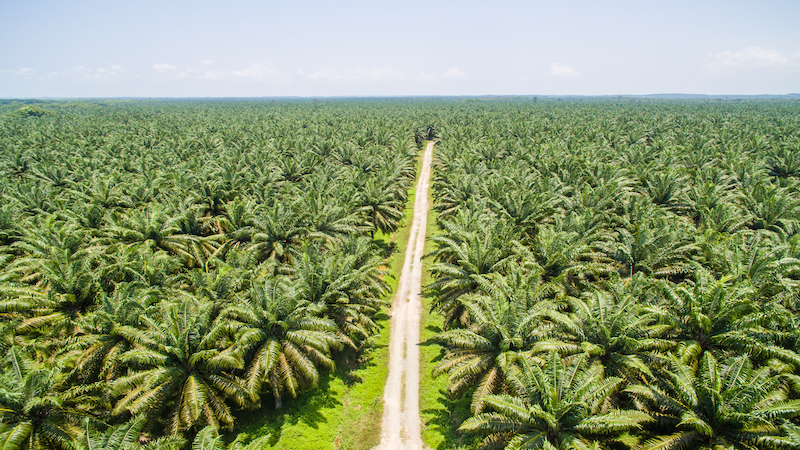Measures to ensure the integrity of biofuels imported into the EU single market are not fit for purpose, an EU producer has claimed, as EU-backed certification schemes fail to prevent fraud, according to Euractiv.
The accusation comes following the announcement of an investigation by the European Commission into suspected customs duties fraud, in which biodiesel produced in Indonesia, a country subject to anti-subsidy duties, was allegedly routed via China and the United Kingdom to avoid import tax.
While companies are required to prove the origin of feedstocks used in the production of biofuels to achieve certification, it is too easy to falsify the outcomes, James Cogan, policy advisor at Ethanol Europe, a family-owned biofuel producer from Ireland, told Euractiv.
“The EU Court of Auditors found in 2016 that the EU certification schemes were in no way up to the job of preventing fraud. It was only a matter of time until the big parts of the system would be found to be deeply contaminated by fraud,” he said in emailed comments.
“It is essential that the Commission investigation team looks at the role of the EU certification schemes in enabling the fraud, and that it looks not only at finished diesel biofuel exports but also at raw materials exports along the same trade routes, i.e. palm oil potentially declared as used cooking oil,” he added.
Certification requirements
European Commission personnel do not carry out biofuel sustainability checks, instead mandating private sector-run schemes to ensure that biofuel imports meet the environmental criteria laid out in EU law.
Biofuel companies must gain certification from schemes approved by the European Commission or EU member states if they wish to export to the bloc. To date, 15 voluntary and national certification schemes are recognised by the Commission.
However, a spate of suspected fraud, both regarding the integrity of feedstocks used in imported biofuels and the true origin of the fuels, has heightened concerns as to the efficacy of such schemes.
Barbora Smailagic, a biofuels expert with the green NGO Transport & Environment, said that “more rigorous audits” were needed.
EU law “does emphasise that the verification of biofuels compliance is done via independent and transparent audits in an easily accessible and user-friendly way. However, these audits are in practice arranged by the companies themselves, so it is questionable as to whether they are truly independent,” she told Euractiv.
NGO critics have long questioned whether some Asian nations are passing off palm oil, a feedstock restricted in the EU due to links with deforestation, as used cooking oil, a waste feedstock eligible for double counting towards EU renewable energy targets.
Highlighting these concerns, Cogan pointed to collection rates of used cooking oil in Indonesia.
“Indonesia is the world’s largest producer of palm oil so they could easily make two million tonnes of palm oil biofuel. By contrast, their collection capacity of used cooking would only be a tiny fraction of two million tonnes,” said Cogan.
If exports certified as used cooking oil were found to contain palm oil, this would represent “huge sustainability fraud”, Cogan added.
The recent influx of cheap biofuels from abroad has majorly disrupted the EU market, causing national governments to take notice.
Following pressure from domestic industry, the German government asked the European Commission in June to look into whether biofuel imports originating in China meet EU sustainability standards.
Long-running criticism over the effectiveness of biofuels certification schemes led EU officials to put forward the “Union Database for Biofuels,” a putative solution to fraud that would track biofuels along the supply chain.
However, the database has been beset with delays and is yet to be fully operational.
Investigation into customs fraud
Under EU law, biodiesel from Indonesia is subject to a 6.5% customs duty. This tax, known as a countervailing duty, is applied to neutralize subsidies given by the Indonesian state.
A European Commission investigation into whether these taxes are being circumvented via transhipments from China and the UK was announced on 16 August and is expected to conclude in May 2024.
In addition to inviting producers to provide information, the Commission’s investigation team will conduct on-the-spot verifications in November.
“If it is confirmed that there is circumvention, then the duties applicable to imports of biodiesel from Indonesia will be extended to imports from China and the UK,” a Commission spokesperson told Euractiv.
Asked by Euractiv for comment on the opening of the EU investigation, a British government spokesperson said UK authorities are monitoring developments closely and “encourage all relevant UK producers to participate fully in this process.”
“We enjoy a thriving relationship with the EU and are committed to working together to unblock trade issues and tackle unfair practices,” they added.
However, the spokesperson stressed that the announcement of the investigation is not an indication of wrongdoing and cautioned against drawing definitive conclusions of fraud before findings were reached.









